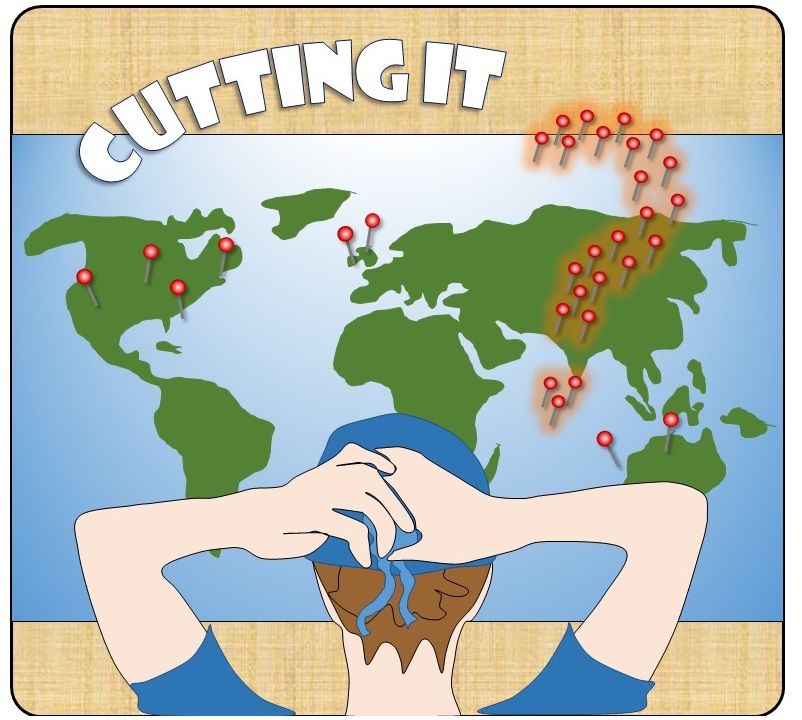It seems like only yesterday I was considering how to be a competitive applicant for medical school and working full-time as a nurse. Now I am down to two years left: 730 days; 17,520 hours; 1,051,200 minutes. Now is the time to pin my colours to a mast. I need to start panning for a sub-internship and electives next year.
In one way, this part is easy. I am lucky because I am certain in my long-term career goals: I want to become a neurosurgeon, and I have a particular interest in epilepsy surgery. I am more decisive than the majority of my classmates, who are hoping this next year of specialty rotations will draw back the curtain on their dream, their ambition. But I know what I want to do and I have made initial contact; I’ve started the ball rolling.
What I don’t know is where in the word I want to go. I have a vague plan: I will qualify and do my internship in this country in order to register with the Irish medical council. For me, an Irish citizen who has completed all of my education in Ireland, this is relatively simple. I will be given preference for internship over international students. So, while most medical students I know feel apprehensive at the thought of intern year, I am one of those unicorns who feels only excitement: Internship is the job! It is the dream. It is being a doctor. Because my years working as a nurse made me aware of the difficulties of the intern year, I have no rose-colored glasses. I anticipate a lack of sleep, no social life, and a constant fear of messing up. Still, I view internship as an odd sort of comfort blanket because it is the last year I am certain of: I know it is a year I will be doing here in Ireland.
After internship, I don’t know where I want to be anymore. I am between three major options, each of which comes with its own subsection of smaller options.
Option 1: Ireland. If I stay here, it is safe and it is comfortable. I have my people around me — and anyone who has ever studied medicine knows the importance of a strong support network. But Ireland is also small. Irish medicine is a tiny circle. After basic surgical training, I would need to apply for higher surgical training. There is maybe one post for higher surgical training in neurosurgery in Ireland — two, at most. If I miss it once, I can reapply. If I miss it twice, I cannot reapply. Just like that: Game over.
Option 2: The United Kingdom. It is close to home. In fact, some would argue that it is easier to get from Dublin to London than it is to get from Dublin to some parts of rural Ireland. It is still competitive, and I have heard that the larger pool of doctors undertaking basic surgical training means there are fewer opportunities. However, the training schemes are straight tracks: Once on the track for your specialty, you stay on it. No risk of losing out half way through.
Option 3: The United States. For me, working in the States has been a dream for a really long time. I love America. I love the people, I love the work ethic, and I love the fact that you start a residency and stay in that hospital (or near enough to it) for all your residency years. I love the security of it. But I’d be leaving my tribe behind. Also, a move to the States would make me an international graduate, one on whom a residency director might not want to take a chance.
As I look into the future, my greatest fears dance with my deepest hopes. I may pine for change even while wishing I could stay exactly where I am. I don’t know what I will do yet. But I have time to figure it out. I am working full-time as a nurse, am involved with research projects, write and edit for a variety of publications, and have family commitments. But by med school standards, I am free. I will take this time to weigh the options, consider all aspects, take my chances and decide.
A medical degree offers students a global skill, where they can work anywhere in the world. But in reality, how easy it is to leave one health service for another? Join Suzanne as she navigates studying in Ireland while planning for a surgical residency abroad.



